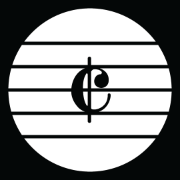Leaderboard
Popular Content
Showing content with the highest reputation on 07/04/2023 in all areas
-
Greetings. I want to present a piano composition I finished recently. This short étude, written in C-sharp minor, is a toccata-like "show-off" piece designed to allow the performer to display his playing skills. This étude also emphasizes the agility of the weaker fingers of the right hand. I was in a state without inspiration when writing this piece, so most parts of the composition were notated spontaneously. Also, I implemented Mike's techniques in enhancing playback realism, so the playback should reflect my interpretation of this piece. Any feedback is appreciated, and I hope you enjoy this piece! Carl Koh Wei Hao2 points
-
2 points
-
2 points
-
I think Italian 6th is easier than French 6th since there's less eeriness in it without that tritone but with a double 3rd. German 6th on the other hand is one of my favourite chord as it's interchangable with the dominant seventh of the Neapolitan key. Just beware of the parallel fifth when the Ger. 6th is resolved to a V chord will be fine! Henry2 points
-
Hi everyone! I'm here to present my most recently finished work, the first movement of my String Sextet in G-flat major. I name this piece a subtitle of Heaven, Earth and Human to express my view on their relationship. (What a self bragging guy this is...) The piece is dedicated to my friend Johnson Ho. Guys and gals, please help me pray for his declining health and wish him all the best. He is definitely one of the reason why I start this piece and the reason why I finish this piece. Special thanks to @Thatguy v2.0 with his always original ideas which sparked my inspirations and new thoughts. Every time after discussion he always gives me new ideas on my composition and musical idea. And he's the one who make this audio perfect in my opinion. Thx so much and I'm so happy I get to know you in this forum and become friends with you as my musical guidance. I will post the mp3, pdf and YT video here first since I'm going to brag all those details after it haha🤣: Final First Draft of First Movement of String Sextet.pdf Final final first draft 01-06-2023 First Movement of String Sextet in G flat major.mp3 https://youtu.be/cI8MAn2XEPk If you don't want to read them, just ignore them!! (spoiler alert)😀😃😄😁😆😂🤣🥰😍🤩😘🤑😵🤢🤮🥶😨😱😭(spoiler alert) (spoiler alert) 😀😃😄😁😆😂🤣🥰😍🤩😘🤑😵🤢🤮🥶😨😱😭 (spoiler alert) (spoiler alert) 😀😃😄😁😆😂🤣🥰😍🤩😘🤑😵🤢🤮🥶😨😱😭 (spoiler alert) (spoiler alert) 😀😃😄😁😆😂🤣🥰😍🤩😘🤑😵🤢🤮🥶😨😱😭 (spoiler alert) (spoiler alert) 😀😃😄😁😆😂🤣🥰😍🤩😘🤑😵🤢🤮🥶😨😱😭 (spoiler alert) This piece is inspired by the thoughts of the great New-Confucian Chinese philosopher, Tang Chun-i. I immerse much in his philosophy and am always delighted reading his huge books. This work is particularly inspired by his thoughts of 9 states of mind, and I really hope I can depict what I feel towards the ninth state, the state of Heavenly(天) Morality Transcending (sorry for my bad English Translation... but this is way too technical for my standard....), his philosophy and Chinese thoughts in general. I choose G-flat major as the tonic since 1)the initial inspiration comes in this key, 2)it's the key of transcendence for me, 3) I want the sound less bright by get rid of those open strings notes, since truth for me is Aletheia in Heideggerian sense, which is hidden but to be disclosed only, rather than a bright thing to have. I know there are some discussions concerning key choice of strings recently, so I'm clarifying here. I had my initial thoughts for this piece in 2021 May when I woke up midnight, but then I was busying with my composing of Clarinet Quintet in C minor and thus ignored it. I wished to continue it in 2022 August after finishing my Quintet, but find it real hard to continue since I don't have the craft to do it. Until I joined YC and saw the following two posts: (Hey Jean @Jean Szulc I said I would learn something from your piece, and this is the product!!!!🤘🤘🔥🔥 Thank you! Will you post here again?) (Yo Vince my bro!!!🤘🤘 Thank you!) These two are absolutely great pieces (go check for them! Vince's piece is still on the "Our Picks" section) and they use the quartal harmony so well. I also learn from Jean's piece on the more extended techniques for strings. Then I had some ideas to finish the piece. This one gonna be something Chinese which is weird in a sense that despite being a Chinese I never write something Chinese. It's always Beethovanian and I really would like to reduce that element in my new piece. After writing the Clarinet Quintet in C minor, especially after having complete an all-controlling piece (esp. the 4th movement), I realized that I have too much reliance on forms and motives and I hope I can make them less explicit in my new piece. I love sonata form very much, but you cannot compose every pieces in it. And for me all the hard work pays off. For the instrumentation is two violins, two violas and two cellos. I love how the addition of 1 extra viola and cello (to a standard String Quartet) thickens the voice and strengthen the middle and low registers. It also gives more chance for viola and cello to sing while having their partners doing the accompaniment. For me the violins stand for the Heaven, violas stand for human and cellos stand for earth, though this is not mandatory interpretation of the piece as it's not always strict imagery. The structure of this piece is more a 3 part one. I have added some rehearsal marks on it to indicate the parts, and I will describe below with some (hopefully) interesting thoughts: (Timepin according to the video) First Section: 00:06 A, main theme. The accompanying texture comes from the first movement of Brahms's String Quintet no.2, one of my favourite of his piece. It starts with viola to emphasize the human call for me. Notice the theme in viola II in 00:23. That theme will appear throughout the whole movement. (Is this a Qi(氣) theme?)00:31 another important theme. 00:38. I like this theme for its contemplative nature. The theme comes from my Clarinet Quintet in C minor. Can you find it? I find it two days before in a wonder LoL. 00:54 B, continuation in high register with added voice. 01:24 C, transition, old theme disguised as a new one. 01:54 D, in D flat major/Mixolydian. The "Heaven" section in my original planning. 02:36 E, continuation in G flat major. 02:59 F, I love the conclusion in 03:13 very much. Modulate to C major to next section in 03:42 and I love the transition so much since it's real hard to compose. 03:42 G, the "Earth" section in my original planning, with cellos taking the lead 04:12 H, repeating the earth section in G-flat major 04:35 I, closing of first part, one of my favourite portion of the movement. I especially love that A-flat major outburst in 04:46. It's magical and I have no idea where does it come from as I only realize it's composed after I finish it. I always imagine Leonard Bernstein conducting this part, LoL. Very synchorinzed here, but it's denied and turn to minor (which will be further developed in the 2nd movement) Second Section: 05:21 J, the minor section. I believe this is the worst part of the movement but Vince's audio saves it. It appears a bit anguished here. The new theme in 05:28 is the basis of both section II and III. Some sort of fugato and imitations happen here though it's not time for it. 06:47 K. I love this part!! Very fluent in violins, and I like 07:06. It's a diminution of the theme of the previous part. I use sul ponticello here to make the sound more silvery. 07:29 L. Trying to reach back to opening section by quoting the first three notes of the theme. But it's external only since it's in F sharp major. Maybe the key difference is only visual and I may change it to G flat major. Also I don't know whether the harmonics work for the violins. I like this section though. 08:24 M. A pizzicato section further developing what's doing in part L. Daniel @Omicronrg9 must have inspire me for this part. I like the contemplativo section in 08:56 too with some call and response between the two violas (humans) 09:34 N. Transition to section III. I freakingly love this part! The transition for me is smooth, and it's transforming the minor theme of section II to a major/pentatonic one. Third Section. 10:05 O. Introduction of the fugue subject. 10:20 is the start of a triple fugue, with the subject in Violin the main one for me. 10:52 theme from 00:38 quoted. Subject through G flat, Eb minor, G flat. 11:10 P. First longer episodes, theme from part F quoted Subject through D flat. I love the preparation for the first climax of the fugue in 11:41. I love the climax in 11:48! Subject in G flat. 12:03 Q. Another episode to direct to C flat major. Themes in part D and the theme in 00:31 quoted. Subject in C flat and A flat minor 12:42 R. The great Con spirito! One of my favourite portion of the movement, The A-flat major is chosen to echo in climax of section I in part I. Final appearance of the subject of the fugue in climactic G-flat major, and leads directly to the coda. In 13:17 I have a moment when the first cello is higher than the violins to correspond with a Chinese philosophical concept in the book of Change, when the power of earth is up and the power of heaven is underneath, it's auspicious since the heaven and earth are communicating instead of isolating themselves. The Chinese words 乾下坤上 is written in the score though lest you know Chinese haha! 13:28 S. Coda, with a decreasing of tempo. I am initially perplexed whether to write like this, since my little Wind Quintet piece has kind of same treatment in its coda. But I just decided to write like this since it's beautiful and the two pieces are interconnected anyway. I want this passage to be like human successfully synchronize with the heaven and earth. It's quite similar to a Chinese opera here in my opinion. I freakingly love that half cadence in 14:03!! The coda ultima in 14:08 is written much earlier, in Nov 5th 2022. I know the conclusion but find the ways to it very difficult. But I'm happy I am able to achieve this ending!! This plan to be a 2-movement work, but I'm not gonna compose the 2nd movement until I'm ready. It will be very different from this movement though. It's such a long post LoL. Feel free to criticize or critique it if you have anything you don't like about it, or compliment it if you want! I don't mind any comments and I will love to have all of them whether they are long or short, good or bad, positive or negative! Thanks for listening! If you happen to read through this LONG post, thanks so much for it!!!!! I have too many things to tell LoL. Love y'all!! Update: The first part of the second movement of this Sextet is posted on Jun 2024: The second part of the second movement of this Sextet is posted on Jan 2024: And here is the entire second movement posted in March 2025: Henry1 point
-
A brand new composition. A Waltz! French - Greek - Austria - German styles inspired! (I think!) Although it starts as a chamber music, it ends with a large ensemble. I imagined it as a small group playing the accordions in a Parisian street, and then slowly others join the group. I tried adding some more variations following the tips of some members of the forum and I tried to keep the duration shorter than usual. What do you guys think? Nikolaos Dimopoulos - Lumiére Waltz1 point
-
Hey Guys, I participated in a competition. The task is to compose an original piece of music about this artwork below. I tried to evoke the atmosphere of "spaghetti western" films. What do you think? I'm curious about your opinion. I've been working on it, so feel free to give me some advice or ideas! Thank you! (I almost forgot, the time limit is 90 sec, so this is the reason why is so short this piece of music.) The artwork itself: https://www.artstation.com/artwork/XnXOEa Here's the piece of music itself. The embedded player disappeared for some reason... It could have been some kind of bug. The funny is, let's take a look at the height of this post, without any content. These are not line breaks, this is the size of the SoundCloud player... https://soundcloud.com/olivercomposer/western-wasteland1 point
-
1 point
-
yeah choir is a crutch for sure, other people have mentioned that about other pieces too. I do want to be able to make concert pieces, I feel like film composing has this kinda connotation of mediocrity (and I agree with it). God forbid I get into epic music lol. Thanks for giving me your take as always1 point
-
Interesting. As @Carl Koh Wei Hao mentioned, I am used to the classic arrangement of augmented sixths where in the bass there is the b6 in the bass that resolves on the 5th in a descending manner and note #4 resolves on the 5th in an ascending manner. Of course, other inversions are possible, as shown here. These augmented sixth chords are also useful for modulation. With the French augmented sixth by enharmony you can modulate, for example, at a distance of one tritone (say from Bmin to Fmin).1 point
-
Wow, this soundtrack fits the artwork for sure! I like the choir near the end, and I wish you all the best in the competition!1 point
-
Hi Guardian25, I think you used the French Sixth properly in this exercise, but I have a few comments: In Bar 6, the movement from E to F-sharp in the bass may sound awkward since both chromatic notes, F-sharp and A-flat, are meant to move up or down a semitone. Therefore, the French Sixth in Bar 6 may not be suitable. Replacing the F-sharp with an F-natural does the job, changing the chord to a diminished supertonic seventh (D, F, A-flat, and C) in C major. Augmented sixth chords are commonly played with the flattened submediant (♭6) as the bass note. From your exercise sheet, only the French Sixth in Bar 13 has ♭6 in the bass, while the rest do not. However, it should not be a big deal if the raised fourth (♯4) moves by semitones, like in Bars 2-3 and 16-17. In Bars 12-13, the C in the alto part moves up an augmented second to the D-sharp of the French Sixth - try to avoid this voicing. Instead, consider changing the C to D to make the voicing stronger. Otherwise, the C may be heard as if moving down to B in the tenor since these notes are a semitone apart. In my opinion, the French Sixth is my favourite among the three augmented sixth chords since it is rich harmonically. I rarely use the Italian Sixth because it has only three notes, while the German Sixth has a perfect fifth interval, which may sound hollow. However, as Henry said, the German Sixth can be an excellent pivot chord since it is closely linked to the dominant seventh chord. Also, care should be taken when using the German Sixth: a 6-4 tonic chord is usually needed to avoid the parallel fifth. Carl Koh Wei Hao1 point
-
Thank you for you comment! 🙂 This is not exactly my "hallmark" vocal, it's almost standard in spaghetti western films. 😄 I try to use less the "aah" vocal nowadays. I think I overused it a little bit. 😄1 point
-
It's that time again. I may have gotten weird with the score.1 point
-
The amazing Henry is back at it again. Thanks so much buddy, I love your take on blues music!1 point
-
Anytime I'm writing something, I am always imagining what the theme is. What it represents. A place, a time period, some sort of character, or whatever. There are two main ways to avoid "writer's block" IMO • Know music theory and all about composition front to back and you will always know what to do to achieve your desired effect • Don't even think about writing music. Just go out and do stuff. Look at pictures, go places, read books, daydream, whatever. All the guys I've met IRL who wrote interesting music did so because they had interesting lives. But so many musicians, myself included, tend to get tunnel vision and only focus on music. I listen to other music, I go outside to the beach to the forest, hiking, I go downhill karting, I read on mythology, etc.1 point
-
Thanks! I have been doing a good deal of studying when it comes to Harmony and Counterpoint and have learned a lot since the last time I posted my previous SATB exercise!1 point
-
Hey @Guardian25, I feel like you improve so much than the last time you're here when we were discussing SATB harmony. I particularly like those French 6ths in b.13 and 16 since they are well prepared by suspension. Good job on this! Henry1 point
-
Hey @Rondo, I think the best teacher for piano composition will be the great composers! Beethoven has guided in my early compositional "life". Try to look out for his 32 piano sonatas first and make sure you know the structure, use of motive, style of each of them. Then look out for Bach's Well tempered Clavier. They are called the new and old testaments of Piano literature for a reason for me. My teacher's teacher once told my teacher that these two are the "rice" of piano playing: in Chinese thinking rice can provide vitality. But of course this is personal, as there are numerous composers great on piano music. Just explore them by listening to them and find ones you love and analyze them yourself. You will find that this will help much more than what a teacher can offer. For the Beethoven Sonata one, I have a great channel to recommend: Make sure you read through all those descriptions on the details and strcutre of each piece. Read also the comment if you want to compare the pianists' playing! Henry1 point
-
1 point
-
Here comes the 3rd movement. I needed to post this so I can move on with my life lol. Links to previous movements. Hope you would enjoy and comment. Btw I should hold my promise, see if I can tag you @Awsumerguy1 point
-
1 point
-
1 point
-
1 point
-
1 point
-
1 point
-
1 point
-
1 point
-
1 point
-
1 point
-
@Henry Ng Tsz Kiu Great performance! 👏🏻👏🏻👏🏻 To piggyback on both of your comments regarding playability: I've also noticed that when you write what is playable, and even idiomatic, for an instrument, 99% of the time it's going to sound better than writing it in some "impossible-to-play" way.1 point
-
I think the squeaking chair and instrument practicing problem are more prominent in the recording of prelude no.4 and 5, since they are recorded in another Piano shop I am not teaching, and that Flute practicing! Hopefully my own practicing won't scare them away lol. For the breathing, it really helps my playing. I probably learn it from chamber music though. You deserve everything Vince. Your preludes are amazing and I love the whole season 1. I guess you still owe me $999999999990000 for each recorded prelude LoL! I think it's crucial. If you don't aim to have it played, why do you compose it? Maybe I'm a practical guy, but I think no matter what fanciful concept and idea you have, it has to be at least playable to realize the great ideas. Thx Vince. I do put some thoughts here. The rubato is completely spontaneous, but for the dynamics I feel like b.12 should be mf, b.21 should have a dim. with that jazzy melody, and b.23 should at least be in mf since it's brighter and thicker. My fav. moment is b.28 after that C minor outburst. It's so cool and serene there!! I also put an sf in b.32 and 33 LH. It reminds me of the 1st movement of Schubert's D960 with the same Gb. The slight sf should give some unsettling mood there. Henry1 point
-
Hey Vince, Thanks for much for your sharing. I am relatively late for this as I'm having some thoughts on how to reply. Yeah that's careless of me and I will change that in the future. Thx for your nuancing! Haha I hope I really do hear what you say to me to make my piece more original and unique. I'm happy that it does appear more unique in this sextet movement. For me I think previously I think more on the emotional aspect of the piece, but now also on how to express the emotions in a more unique way. That's the biggest change I think I've reflected on after joining YC and meeting you. I have to admit that you remain the biggest influence on my music besides myself since my joining YC, and I'm very grateful to have known you Vince. Yup that's one thing I want to maintain in my major works: I always want my works to be healthy and restrained. The world for me is getting worse and worse now, and I don't want to add emotional burden to the world. Schubert's and Tchaikovsky's are beautifully tragic pieces, but the world has suffered enough for me to compose more painful pieces. I really would like my piece to be more useful to enhance listeners' sense of elevation and happiness, even though I appear bragging on this. That's my hope to achieve this as I don't want my music to stay in a lower level of personal sufferings. Thx Brahms for his String Quintet no.2 on this! I definitely get the inspiration from him. I still think it's the worst part of the piece, after quite a number of people say the F# minor fugue is amazing and even one of the BEST part of the piece!!!!! For sure the composer is only one of the commentator of his own piece and he is not a special one, as once the piece is born the composer should let his pieces go, just like how a mother let go of her children. For me the pizzicato section is commonplace, but again my words are no way authoritative haha! It's just natural to write pizz. for the opening theme, I don't know why. To be honest, I don't know why I write like this for the movement. I never try to be pentatonic or Chinese but the result IS indeed pentatonic and Chinese. For me I will just write what the music need and hopefully my voice shines through them! The 2nd movement, I promise, will be a very different movement. I think I will have some post-tonal treatment of the opening materials in the opening section, and I hope some Gregorian chant elements can mix too with antiphonal texture. I have some ideas right now but I'm just focusing on the first movement of my Third Piano Sonata right now (which will be finished soon I guess)so let's see what will happen!!! Thx again for your tons of work (for me)!! Will I be shameless to ask for your help on other pieces, for example my little wind quintet piece? Kind Regards!!! Henry1 point
-
1 point
-
thank u so much man. well, Ive never gone to school for it or been trained on it, so I don't really have a good answer to that. I guess just meditation and following my heart and joy. Oh, and listening to people's feedback has helped me a lot. I remember one person told me something like "you need to use and develop motifs, right now its just one brilliant thing after another" and that changed my perspective quite a bit.1 point
-
This is exceptionally well done and thought through! Brilliant choice of harmony and orchestration is also good. However Last bit seems off to what's going on in the first 3 minutes, make it bigger! This piece asks to be 15 minutes long 🙂1 point
-
Hey Vince @Thatguy v2.0, I've almost forgotten this piece lol! Well ironically I feel like this prelude is where you show your freest self lol! You are really free flowing in this one and the imagination is the highest comparing to the previous six preludes since here you are without any constraints of styles. Very attractive jazzy style here which I can never compose like this (since I am always too serious in my music ! I enjoy your words in your score even though I cannot read them all! I do think this will be difficult to play especially I'm not used to playing jazzy style pieces at all! Thanks for sharing and waiting for no.8! Henry1 point
-
Having watched almost nothing of South Park, I don't feel I'm qualified to say anything here. But I know good music when I hear it (or so I tell myself), and this is good music. Fun and soulful... real bluesy feel. I give it two thumbs way, way up!1 point
-
Nice, catchy piece. Bloomin' difficult to play (not that I've tried). I liked the up in the sky bit followed by everything tumbling to bass (bars 16/17/18). I reckon Billy Mayerl players would have problems doing this justice but for this style it's effectively a study and a worthwhile prelude in the traditional sense. Great.1 point
-
That's great to know. Thank you for your wonderful suggestion.0 points
-
It's just to meet the Dreamscape competition requirement. I wrote this piece after watching some videos of people creating really nice music with just midi in FL Studio. I wanted to give it a try.0 points











